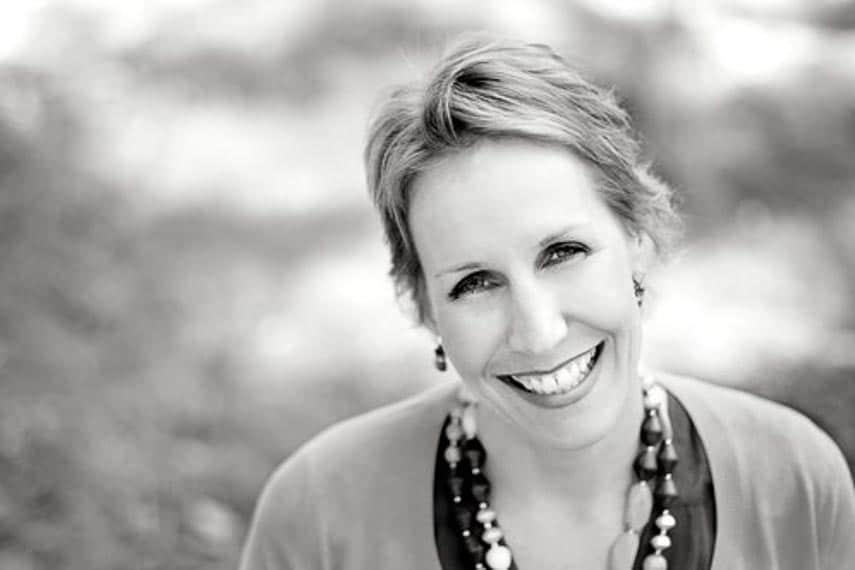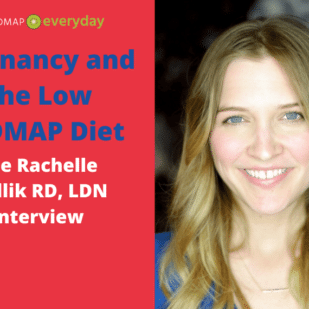An Interview with Diana Reid, The Global Dietitian
Diana Reid MPH RD has joined our Success Team and we want to take the opportunity to introduce you to this globetrotting dietitian. In fact, her blog is called TheGlobalDietitian.com and she means it! She is a U.S. ex-pat (Washington state) currently residing in Luxembourg.
Luckily for all of us, she is quite accessible for video conferencing, phone as well as in-person consultations – and she counsels in English and Spanish and will receive her certification to counsel clients in French in later this year (2018).
Diana has completed the Monash University Training for the low FODMAP diet and has a special interest in pediatric and adolescent nutrition, as well as high performance athletes and their nutritional needs.
She has already brought us articles on Enzyme Supplements, Vitamin D & The Low FODMAP Diet and she is working on helping us with low FODMAP international shopping lists, among other projects.
You can find Diana’s Articles Here
Dédé Wilson: Diana, we are thrilled to have you as part of our Success Team at FODMAP Everyday®. Let’s start at the beginning and tell us about why you became a dietitian and also how you first became aware of the low FODMAP diet.
Diana Reid: I became a dietitian after spending 15 years in the business and technology world, and really wanted to find a career that would both inspire me and allow me to help others. Nutrition just seemed to really fit that bill for me.
I’ve also traveled a lot around the world and seen the power of nutrition, and what happens to individuals or populations when they don’t have access to good nutrition and/or healthcare. I like being able to make a difference in people’s lives.
Finally, I have three children, and one of my sons has always suffered from gastro-intestinal and respiratory issues, so he was also part of my inspiration to change careers and become a dietitian.
In terms of the low FODMAP diet, I became aware of it during graduate school a while back, but really started studying up on it a few years ago when the whole gluten-free craze came to pass in the US.
It concerned me that so many people were self-diagnosing an allergy or intolerance without knowing what was really happening with their bodies and their health.
We have seen more and more research lately about how gluten is probably not the culprit for most individuals (with the exception of those with celiac disease) in terms of their GI symptoms, and it became extremely important to me to understand FODMAPs and help others navigate a healthy and nutritious path to symptom relief.
How has it changed your ability to help your clients who suffer with IBS?
The low FODMAPs diet is a game changer. So many individuals have tried dozens of different things over the years to alleviate their symptoms, but never really hit upon the one thing that would truly or permanently help. It’s been a guessing game for many, and a really frustrating one.
As a dietitian, having a very structured path to identifying IBS triggers and then personalizing a nutrition approach to meet each individual client’s needs is so valuable. I feel so much better equipped to help my clients feel better, faster.
Have you used the low FODMAP diet to help other diagnoses?
Not at this point, however I’m really intrigued by the recent evidence around the possibility of the low FODMAP diet for breastfeeding moms of infants with colic, and also as a possible tool for women with endometriosis.
I personally suffered from endometriosis for nearly a decade and it was beyond miserable. I missed work, missed family outings, and so many other things due to pain and GI discomfort. If only I’d known about the low FODMAP diet back then!
Tell us a little about your time in Luxembourg. You have a unique view of having experienced clients with IBS in the U.S. and now those in Europe. Do you hear the same stories? Is anything markedly different?
Luxembourg is a tiny, very dynamic country of about 500,000 people right in the center of Europe. As a banking and investment center, people move here from all over the world for work, and thus about 50% of the country’s residents are not actually originally from Luxembourg.
So it’s really rich in cultural diversity, including language, food, political views and the overall outlook on life. I really love being part of a global community and have friends and associates who are Luxembourgish, Spanish, French, Dutch, Canadian, American, English, German or Italian.
What I find is really interesting here is that there is no one single pattern of eating. Each culture has its own views on food, and their own food preferences and rituals. In general, we do tend to eat more fresh foods and less packaged or fast food in Europe, but again it depends on the individual or family.
And meals are generally not an “on the run” thing the way they often are in the US. Here, meals are part of a larger culture of connection with friends and family. They are savored and not rushed through. I love that part. (Though I do miss the occasional Starbucks drive-through run!).
How about awareness of the low FODMAP diet? Or go one step further and tell us about acceptance of the diet in the different locations that you have practiced. For instance, are doctors in Luxembourg recommending the diet? Do you see any FODMAP labeled foods where you live now?
In terms of IBS, the low FODMAP diet isn’t as well known here in Luxembourg as it is in say, the UK, Australia or the US. And the Monash app isn’t yet translated into French or many other non-English languages, so that’s a hurdle.
Doctors here also aren’t all that aware, depending on where they went to medical school or previously practiced. Some of the French and UK-trained physicians are very aware of the diet, but it’s a bit hit-and-miss still.
In general, there’s increasing awareness in Europe of the low FODMAP diet, but it’s still not something that’s immediately thought of as a treatment for IBS (again, with the exception of the UK).
And sadly, there are not yet any low-FODMAP labeled products in Luxembourg. We do have a lot of requirements regarding labeling for food allergens in Europe, including gluten content of foods, but FODMAP isn’t yet included in these.
I hope raising awareness of the diet is something that I can help change over time, here in my tiny corner of the world!
Your first article for us was on digestive enzymes. Do you recommend them often to your own clients? Do you think they are an area that might be discussed more with IBS patients? When I had pancreatitis the concept of pancrealipase never came up and now I wonder why. Are there tests for whether someone is enzyme deficient or are recommendations based on symptoms?
There are tests for a number of digestive enzymes, including either blood or breath tests, but it all depends on the doctor and the individual in question regarding which test, if any, is most appropriate.
As an example, in the case of lactase (the enzyme that helps us digest lactose), we can use a breath test to diagnose the enzyme deficiency, but for some individuals, lacking the enzyme might not actually cause symptoms (and this person might not need to eliminate lactose).
So, going through the FODMAP elimination and re-challenge phase can actually be more informative. Similarly, all humans lack the enzyme to digest GOS (galacto-oligosaccharides), but this doesn’t mean that all individuals have GI symptoms that result, nor do they need to supplement with alpha-galactosidase enzymes.
So, some of this is still a bit trial and error, and again, a careful elimination and re-challenge phase can help identify specific tolerances and/or where an enzyme might be useful. As always, I recommend that people talk with their doctor or dietitian before trying any supplements, including digestive enzymes, as there are some conditions where these can cause problems.
You have completed the Advanced FODMAPs Training for Dietitians at Kings College of London. We talk a lot about Monash University in Melbourne at FODMAP Everyday®, but we would love to know more about Kings College.
There were a number of similarities with the Monash training around the general constructs and recommended phases for the low FODMAP diet, and a few of the researchers at Kings originally came from Monash, so it’s all very complementary.
In addition to the basics on how to implement the three phases of the diet with IBS patients and clients, the Kings College program also offered a deeper look into some of the research they are doing in the UK on things like enzyme supplementation, breath testing and its effectiveness (or lack of) in assessing or diagnosing IBS, predicting who will respond to a low FODMAP diet, and deeper research into probiotic use and the low FODMAP diet.
There are many new areas of science around gut health that both Monash and Kings are looking at, and it has been really rewarding to be exposed to multiple philosophies and bodies of work.
Tell us about Motivational Interviewing (MI)! I read about this on your blog and am fascinated.
Motivational Interviewing is really just a fancy way of saying client-centered, and I love it! This approach is a way of getting at the heart of what a client needs and working empathetically and compassionately alongside them to make lasting change.
Some healthcare providers approach care as a “I’ll tell you what to do and you’ll do it” scenario. Motivational interviewing is instead based on the premise that the answer to an individuals’ issues are often found within themselves.
As healthcare providers, one of our most important jobs is to help coach and guide our patients and clients in finding the solution that best fits their personal needs – and not just giving them a list of things to do or not do, eat or not eat. Because if an individual doesn’t fully buy into what the plan is for their care or nutrition, they are not likely going to make lasting changes.
With MI, we try to find what might be hindering someone’s ability to change their diet (e.g. stress, time, budget, fears about new foods, etc.) and then assess what we might do to work within those constraints to make some simple changes to their diet.
We look at how ready someone is to change, and what type of change might be feasible at the moment, and then make a plan for other changes in the future as the client feels more comfortable and has some successes. It’s an approach that tends to lead to greater success in the long run, because it’s very individualized and not forced. While dietitians are the nutrition experts, the patient or client is the expert on themselves!
Diana, this is fascinating and I am so glad I asked the question!
We see this all the time via our FODMAP Everyday® community members asking questions about whether they can try a food or not.
And of course we always support working with a GI and a dietitian but we are also always encouraging people to understand that they not only have to be involved in observing their own body’s reactions but also that this is an empowering part of the diet.
That you can assess and re-assess and learn about how you uniquely react to foods, their amounts and frequency of ingestion.
I love that you say, “Food is meant to be enjoyed, not suffered through”. How did you formulate this approach?
I’m an American by birth and citizenship and I really feel we live in a very judgmental culture about food in the US. People are constantly afraid of eating the “wrong” thing or eating “bad” foods. There’s endless debate about what is “clean” and what is “healthy.”
Great segue from what I was just saying…
There’s just so much guilt and stress around eating, which seems to be entirely misplaced and unnecessary. And then there’s the feeling that we “should” eat things we don’t like, because they are “healthy.” It just leaves an individual feeling confused and stressed out, when food is something that can be savored and enjoyed.
I believe there are myriad different ways of being healthy and eating nutritiously, and I like to help people find the path that works best for them and their lifestyle.
Living in Europe has really crystallized this philosophy for me, as I see a more laid-back approach to food and eating here. Sure, everyone still has their own cultural beliefs and practices about food and/or health, but I do find less stigma here and more tolerance to a variety of foods and eating approaches.
How did you come up with the idea to offer shopping tours and cooking sessions to your clients?
This is kind of related to the previous question. I have found that the stress of “eating right” has permeated into the kitchen for so many people, especially women and caregivers. There is pressure to eat “perfectly” and some people feel judgment about what they prepare, eat or feed their families. Limited time is also a big issue for many families.
Cooking sessions offer a chance to help others feel more comfortable in the kitchen, to learn about new foods they might not have previously tried, and to build a “toolbox” of simple, easy to prepare and nutritious meals for themselves and their families.
In addition, in a country like Luxembourg, where hundreds of thousands of people are “new” and perhaps not familiar with the specific foods common here or the languages found on food labels, it just makes sense to offer services to help individuals navigate the grocery store or farmers market to find interesting, healthy and delicious foods.
It’s also a great way to get to know others in the community, including farmers, cheesemakers, and other providers.
Robin and I might have to visit. Touring markets wherever I visit is always high on my list. I have to say that when I went to Bonaire, that the Dutch food labels were a challenge!
Diana, thank you so much for the interview and we are thrilled that you have joined us here at FODMAP Everyday®. We are looking forward to learning more about your global view of nutrition.
Thank you for having me! I’m thrilled to be part of this incredible community.








Great to have you part of the group! I would be interested in meeting with a Dietitian in our area! I live in XXXX. Do you have a practice or office locally? I have IBS, now having gallbladder removed 4/24. If you have any information on scheduling an appointment, private message me: Camille Alflen Buchanan or email me below.
Thanks! Camille Buchanan
Camille, we have forwarded your query to Diana. Thank you for writing.
Thank you for sharing all your knowledge. I have fibromyalgia and ibs is one of the side effects of it. Also have inflammatory bowel condition. I try to follow a fodmap diet it’s very hard especially going out. It can be very challenging.
Hi Gail, Thank you for writing and I am so sorry you are experiencing your medical issues but you have found a great resource in us that we hope – and believe – will help. Please note that we just welcomed Colleen Webb to our Success Team and her focus is IBD. Take a look at her background and articles.